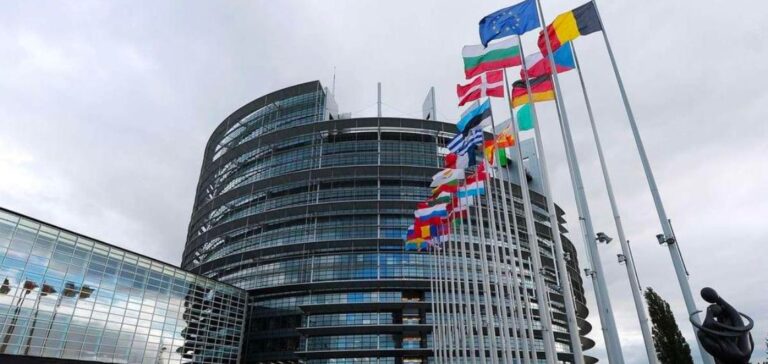The EU will de facto block Tuesday the adoption of a draft reform of the Energy Charter, an international treaty deemed too protective of investments in fossil fuels, for lack of agreement among European states, Brussels announced Monday.
A compromise to “modernize” the three-decade-old treaty was drafted in June, but had to be confirmed by a formal unanimous vote of the 50 or so signatory countries at a conference on November 22 in Ulaanbaatar, Mongolia.
However, several EU Member States (France, Spain, the Netherlands, Luxembourg and Germany) have announced in recent weeks their decision to withdraw from the treaty, judging the compromise on the table to be insufficient to meet the challenges of the climate. Italy withdrew from the program in 2015.
At a meeting on Friday, “the member states were unable to agree on the modernization of the Energy Charter Treaty (ECT), so we will ask that this item be withdrawn from the meeting on Tuesday,” resulting in a postponement of the vote, announced Miriam Garcia Ferrer, a spokeswoman for the European Commission.
According to a diplomatic source, France, Spain, the Netherlands and Germany abstained Friday on the mandate to be given to the European executive.
The ECT was signed in 1994, at the end of the Cold War, to offer guarantees to investors in the countries of Eastern Europe and the former Soviet Union.
Bringing together the EU and some 50 countries, it allows companies to claim compensation before a private arbitration tribunal against a state whose decisions and regulations affect the profitability of their investments – even when it is a question of pro-climate policies.
A typical case: after the adoption of a Dutch law banning coal by 2030, the German energy company RWE is claiming 1.4 billion euros from The Hague to compensate for its losses on a thermal power plant.
180 million in compensation to the British oil company Rockhopper.
States wishing to withdraw from the treaty continue to be subject to its obligations, because of a “survival clause” protecting investments covered by the ECT for 20 years after a signatory country withdraws.
The Commission was therefore pushing them to approve the modernization project, even if it meant withdrawing afterwards with a “survival clause” applying to the modified treaty.
The proposed reform aims to prevent “opportunistic claims” and to exclude from the scope of the treaty, after a 10-year transition, investments already launched in fossil fuels, as well as to reduce the survival clause.
“On the next steps, we need to discuss it with the member states,” Garcia Ferrer said.





















